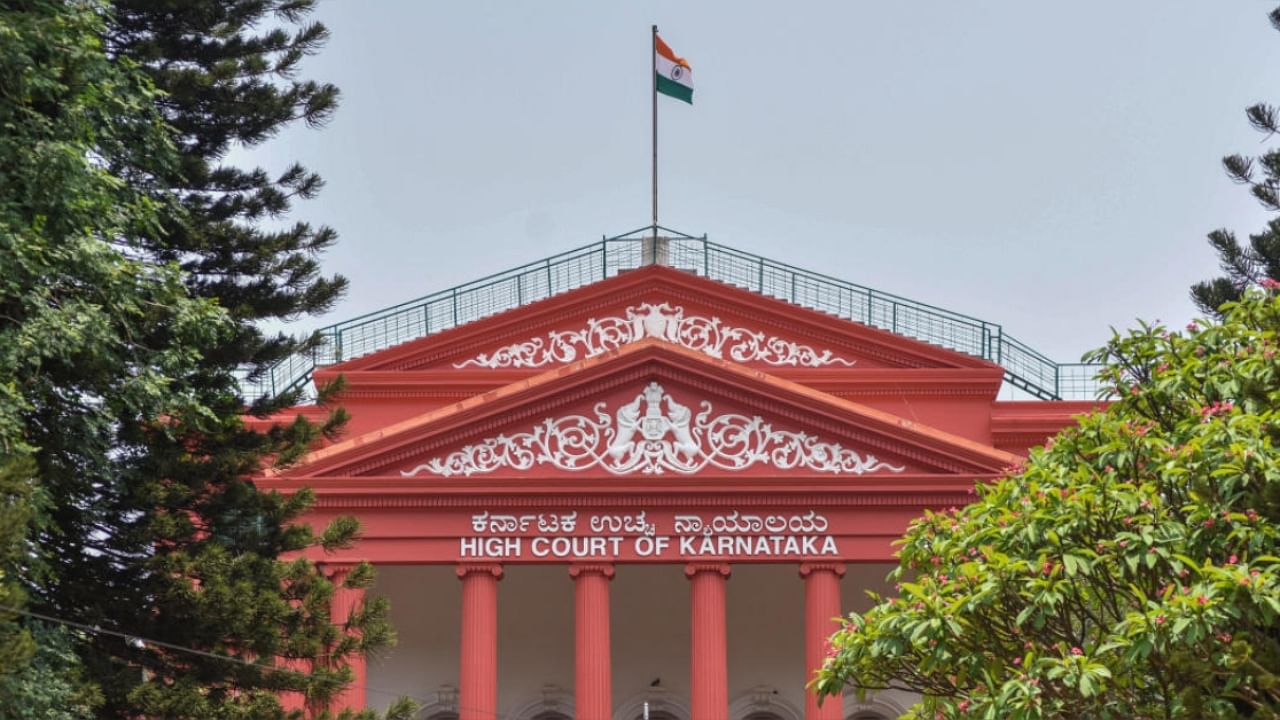
The Karnataka High Court.
Credit: DH Photo
Bengaluru: The High Court has quashed proceedings against Minister S S Mallikarjun and three others in a case of the rescue of wild animals, including blackbucks, from a farmhouse in Davangere.
Justice M Nagaprasanna observed that once cognizance is taken, it is impermissible in law to take cognizance yet again for the offence that had already been taken cognizance.
The case had initially originated from Hebbal police station limits in Bengaluru when one Senthil was apprehended for possessing the skin, antlers and teeth of wild animals. A case was registered under the provisions of the Wild Life (Protection) Act.
Based on his voluntary statement, the CCB police searched Kalleshwar Rice Mill at Anekonda village, Davangere taluk, on December 21, 2022. After the matter was communicated to the Assistant Conservator of Forests (ACF), Davangere, the Range Forest Officer (RFO) filed a written complaint before the JMFC against Sampanna, G M Karibasaiah and Senthil.
The magistrate court, acting under CrPC section 190(1)(a), took cognizance and issued a direction to the ACF, Davangere to investigate the offence under CrPC section 202(1). The ACF then registered an FIR under rule 65(1) of the Karnataka Forest Manual for offences under the Wildlife (Protection) Act.
Upon filing of the final report on May 8, 2023, the magistrate took cognizance on the same day against all the accused. The magistrate also opined that there was sufficient material to take cognizance of the offences punishable under IPC sections 465 and 201 and registered a criminal case against the seven accused, including the four petitioners.
The minister, arraigned as accused number 4, along with his brother and industrialist S S Ganesh (accused no 7), Sampanna Muthalik (accused no1) and G M Karibasappa (accused no 2) had challenged the proceedings. It was argued that there are incurable procedural violations in the registration of the cases. It was submitted that taking dual cognizance is contrary to law.
Justice M Nagaprasanna noted that an investigation for offences punishable under the Wild Life (Protection) Act, 1972 has to be in terms of the Wildlife Crime Investigation Handbook.
The court further said that if the wildlife offence is detected after the search and seizure, the Forest Officer has to record all the details in the Wildlife Offence Register in terms of prescribed format and prepare a Wildlife Offence Report.
“This is given a complete go-bye. It is thereafter, that the complaint would be preferred before the jurisdictional Magistrate under Section 200 of the CrPC. This procedure is violated for it to become topsy-turvy. What the Range Forest Officer would do is to register the FIR at the outset and later, file a complaint before the learned Magistrate both of which are on the same offence,” the court said.